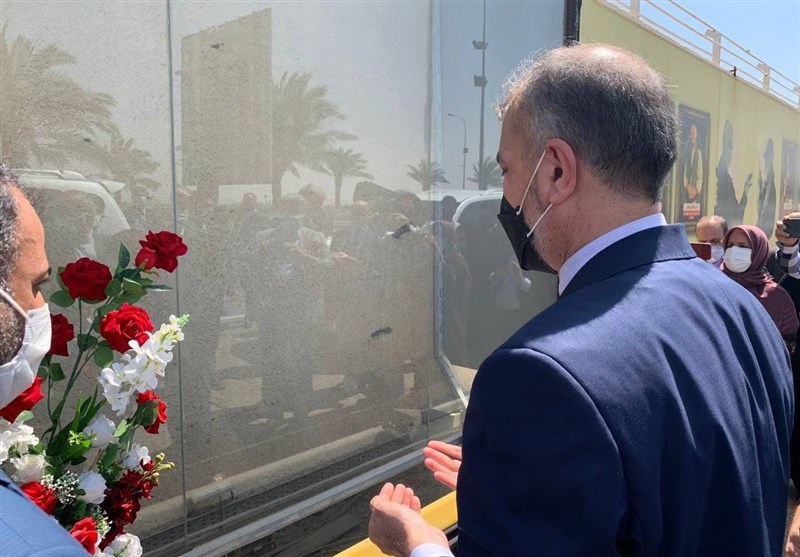AhlulBayt News Agency: Iran's foreign minister says the country continues to exhaust all available legal, political, and diplomatic channels to bring all those involved in the assassination of the country's top anti-terror commander, Lieutenant General Qassem Soleimani, to justice.
"[All] necessary measures have been taken in this regard," Hossein Amir-Abdollahian said in a Sunday interview.
"In addition to following all [available] legal channels, we have declared and registered then US administration's responsibility in the assassination through an official memo, and will follow up on our lawsuit through its own natural path," Iran's top diplomat stated.
Amir-Abdollahian added, "Unfortunately, both the Americans and [other] Western [countries are trying to] stonewall and obstruct the process of legal pursuit of the case."
"The Islamic Republic's hands are not tied, though," he asserted, noting that, in parallel to its legal efforts, the country is taking other punitive measures against those responsible for the assassination of General Soleimani.
Among these measures, Amir-Abdollahian said, Iran has placed the names of 60 relevant American officials, who have had a hand in the assassination, on its terrorist blacklist.
According to the foreign minister, the latter measure has not sat well with the Americans, who have been demanding the Islamic Republic to take the names of those individuals out of the list.
The American side has, through indirect channels, explained to the Islamic Republic that the blacklisting has prompted Washington to invest "exorbitant expenses" in ensuring those officials' safety both inside the United States and during their overseas' trips, Amir-Abdollahian said.
Iran has, however, stood firm by its decision, calling the blacklisting a "precise and correct" measure, said the foreign minister.
"We will follow up on this [measure] through political, legal and international channels, so these individuals will be brought to justice," he said, reiterating that the Iranian Foreign Ministry would not spare any effort as it pursues the case of the assassination.
The United States assassinated General Soleimani, the former commander of the Islamic Revolution Guards Corps (IRGC)'s Quds Force, along with Abu Mahdi Al Muhandis, deputy commander of Iraq’s anti-terror Popular Mobilization Units, and their companions, in a drone strike near the Baghdad International Airport on January 3, 2020.
The commanders had amassed considerable popularity among the regional peoples for their role in the defeat of the Daesh Takfiri terrorist group in late 2017. The terror outfit had emerged in Syria and neighboring Iraq in 2014 as Washington was running out of excuses to extend or enlarge its regional meddling.
The assassinations were followed by monumental protests and funeral processions in the Arab countries and elsewhere throughout the region. Soon after the atrocity, Iraq's parliament overwhelmingly ratified a law mandating expulsion of all United States-led forces from the country's soil.
Speaking earlier on Sunday, Leader of the Islamic Revolution Ayatollah Seyyed Ali Khamenei lauded the sacrifices that had been made by the late general.
“By strengthening the physical, spiritual, and mental aspects of the resistance, the general preserved, equipped, and revived this eternal, growing phenomenon against the Zionist regime, US influence [in the region], and other arrogant countries,” he said.
The Leader also praised as one of the important feats of General
Soleimani the elimination of Daesh and uprooting its subsidiaries.
/129

